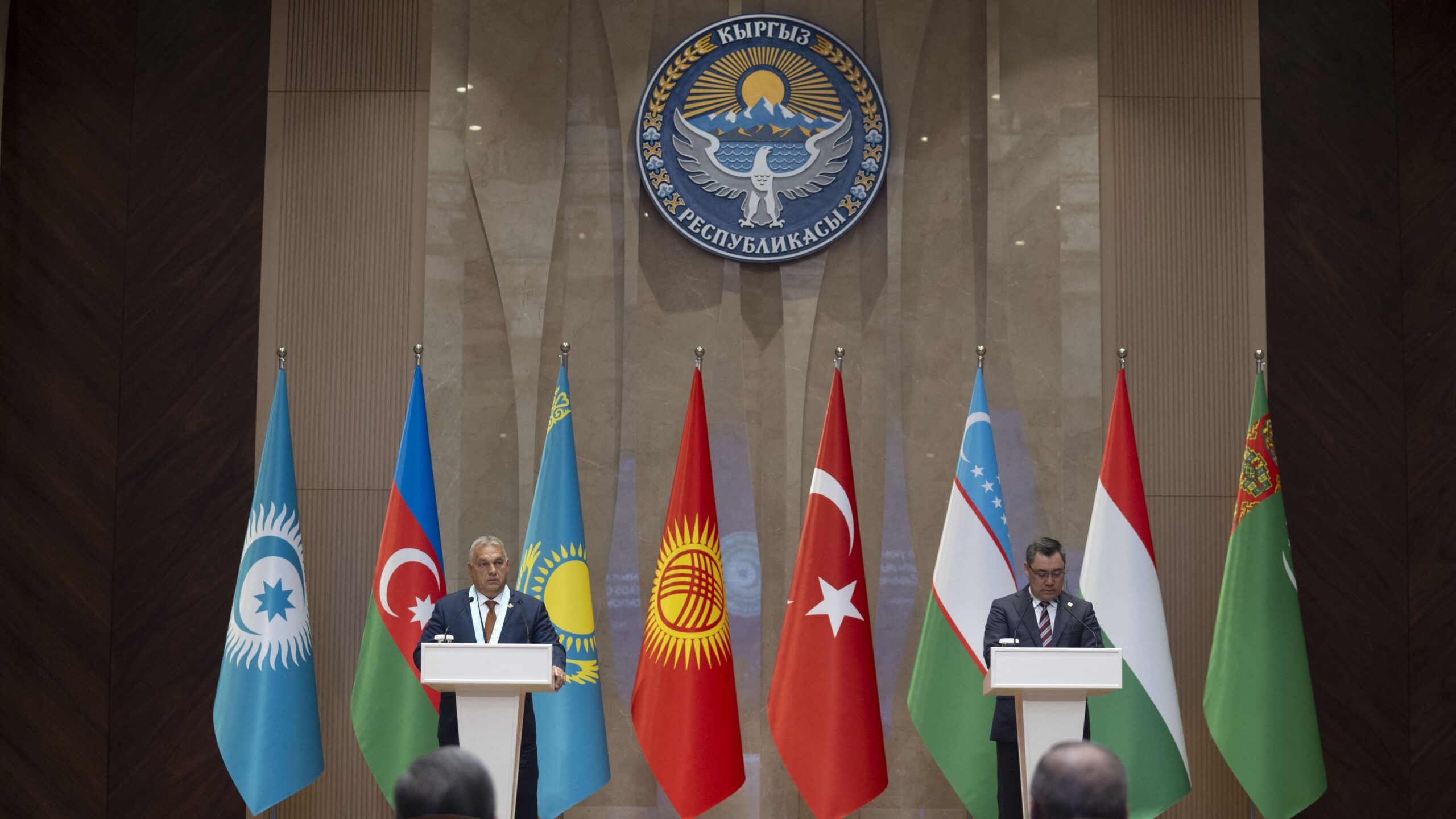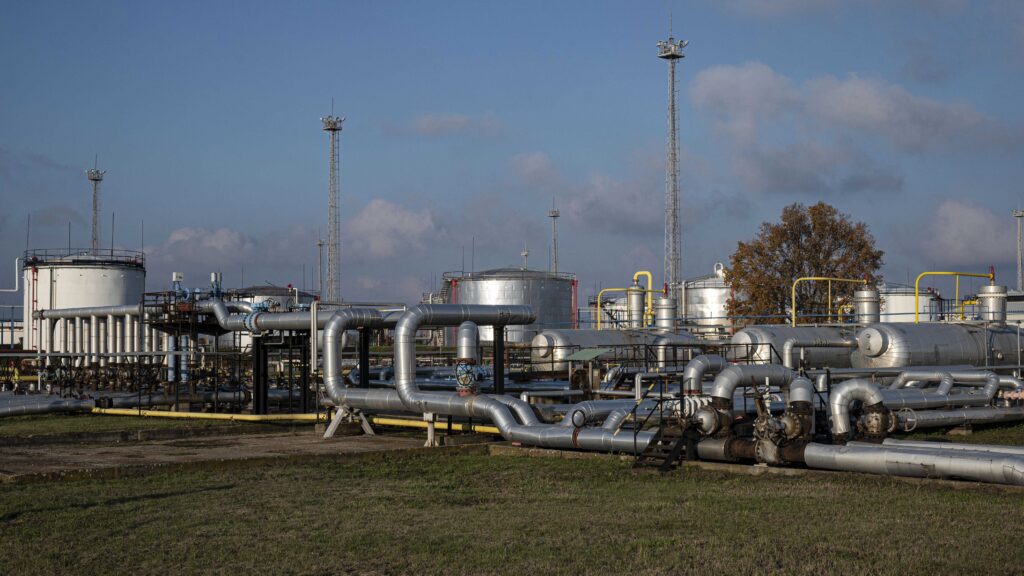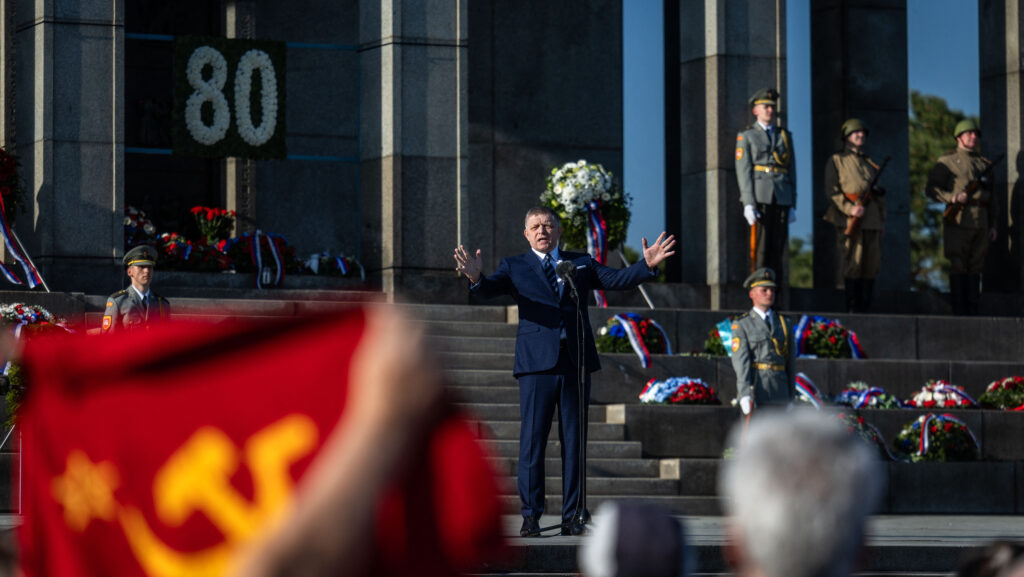Recently Hungarian Prime Minister Viktor Orbán was awarded the Supreme Order of the Turkic World. On the ceremony in Bishkek, Kirgizstan Viktor Orbán noted that Hungarians are the ’westernmost of the Eastern peoples’, emphasizing the country’s shared heritage with the Turkic nations. In his speech, he highlighted the longstanding cultural, historical and economic ties between Budapest and other member states of the Organization of the Turkic States.
The Supreme Order of the Turkic World, established in 2019, is the highest award of the Organization of Turkic States. This year the award, which is dedicated to those leaders who contribute significantly to strengthening the unity and cooperation of Turkic nations, was presented to Prime Minister Orbán by Kyrgyz President Sadyr Zhaparov. When reflecting on the cultural connections between Hungary and the Turkic world, PM Orbán highlighted the work of Ármin Vámbéry, an extraordinary scholar, traveller and linguist—whose life was covered earlier in detail—, a Hungarian Turcologist who dedicated his life to study the East.
The Organization of Turkic States or the Turkic Council was established in 2009, and Hungary joined as an observer in 2018. The Turkic Council consists of Azerbaijan, Kazakhstan, Kyrgyzstan, Türkiye and Uzbekistan, while Hungary as well as Turkmenistan (and the Turkish Republic of Northern Cyprus, recognized only by Türkiye) are observers. The Organization’s secretariat is located in Istanbul, Türkiye but the Council has a Budapest Office too. Expect for Hungary, all members speak a Turkic language and are Muslim—Hungary is connected to the organization by its historical heritage, as Hungarian people migrated to the Carpathian Basin from the steppes of Central Asia many centuries ago. In 2025 Budapest is expected to host the Summit of the organization.
As Viktor Orbán also highlighted in his speech, the relationship between Hungary and the Turkic nations is not a thing of the past ‘but a living relationship’. Budapest’s trade with Turkic countries having exceeded 5 billion USD testifies to that. In the past year trade volumes between Hungary and Turkic states expanded by 20 per cent, while in the past 15 years they grew by 350 per cent. A recent milestone in Budapest’s cooperation with the Turkic world was achieved in this summer, when Hungary acceded to the Turkic Investment Fund. The Fund aims to foster economic growth and investment among its member states; Hungary contributes to it with 100 million USD. Besides economic ties, Hungary is also strengthening cultural relations with its Turkic partners—more than 5 000 students from members of the organization study in Hungary.
Over the past years Hungary has fostered particularly strong cooperation with the Turkic nations in the energy sector. Recently Hungary’s energy giant, MOL acquired part of the Rozhkovsky gas field in Kazakhstan, where production started about a year ago. The recoverable gas and condensate from the reservoir is estimated to be 158.8 million barrels. In 2024 the production capacity of the field is about 1.5 million cubic metres per day, which will be expanded to 2.5 million cubic metres per day by late 2027.
In addition to MOL’s presence in Kazakhstan, the Hungarian–Azeri effort to bring green electricity to Central Europe is also a notable project between Budapest and the Turkic nations that can contribute to the diversification of Hungarian energy sources. Baku plans to bring green energy to Hungary through Georgia and Romania using an underwater power line in the Black Sea. The 1100-kilometre-long underwater cable, the longest of its kind in the world, is expected to be operational by 2028.
‘While Hungary is eager to foster mutually beneficial economic ties with a diverse set of countries, it has received criticism for cooperating with the Turkic states’
From the members of the organization Hungary shares the strongest economic ties with Türkiye. Last year the bilateral trade volume between Budapest and Ankara has reached 4.3 billion USD; while last year Hungary had a positive balance of trade with Ankara. The flagships of Hungarian–Turkish trade are Medicor, a Hungarian company that is now manufacturing medical devices in Turkey; Hell, which sold 19 million cans of energy drinks in Turkey; ANY Security Printing Company (formerly known as State Printing Company) involved in the printing of Turkish passports; and Hunland having sold 71 thousand cattle in Türkiye. Recently Hungary also became the first country not neighbouring Türkiye to receive gas from Ankara.
While Hungary is eager to foster mutually beneficial economic ties with a diverse set of countries, it has received criticism for cooperating with the Turkic states. Both the Hungarian opposition and international critics has claimed that the country’s membership in the Council is ‘rooted in a nationalist narrative’; while many disapproved that the government is working with non-democratic Eastern countries. Among the critics are representatives of the European Union—the EU’s chief diplomat Josep Borrell warned Viktor Orbán during the summer, when he was attending the Turkic Summit in Shusha, that despite Budapest holding the rotating presidency, Hungary is not representing the EU on the Organization’s Summit. ‘Hungary has not received any mandate from the EU Council to advance relations with the Organization of Turkic States,’ Borrell said.
Contrary to the criticism, and the warnings against trading with non-Western countries, Hungary believes in connectivity, and condemns any attempt to build opposing blocks. For Budapest, connectivity means that business partners should not be selected through an ideologically driven process, but all mutually beneficial economic opportunities should be realized, thereby maintaining economic neutrality.
Related articles:







